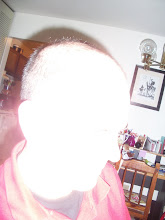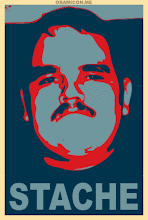Friends,
I found an older copy of Milan Kundera's The Book of Laughter and Forgetting at the St. Vincet de Paul's thrift shop that was translated straight from the Czech and not from the French revision he did (like the copy linked to above). It was 85 cents, so I bought it. What the hell. Plus, I was always curious if this one strange thing in the French version, where a paragraph is repeated, verbatim, at the end of the first "Lost Letters" sections was intentional or a misprint (the version I have has more mistakes in it, so that's what makes me curious). And, wouldn't you know it, that paragraph is not repeated in the older, straight from the Czech version. But, that doesn't necessarily mean that the paragraph repetition was a mistake.
In the back of the French version, the version that is in circulation today in your local bookstores, Kundera writes that after he revised the French translations of his books that they "did not result in variants of my original text." And that he only wanted "accuracy" and he believes that the French translation is the most representative of his wishes for the book. Even calls the French translation "closer to the originals than the originals themselves."
However, there are differences. And while they may be subtle (I have yet to read the translation straight from the Czech), they are changes just the same, so they are a kind of variant. Also, considering the themes of forgetting in this book and, to put it quickly and generically, the dangers of it, that sloughing off one version in favor of another a kind of airbrushing of memory? Just a thought. Anyway, here's a side by side comparison of the two versions. It's just a little sampling, the first numbered part from the first chapter or "Lost Letters" story in the novel. In the comments below, say what you think about the changes. For better, for worse, for indifference?
| From the French | From the Czech | |
| In February 1948, the Communist leader Klement Gottwald stepped out on the balcony of a Baroque palace in Prague to harangue hundreds of thousands of citizens massed in Old Town Square. That was a great turning point in the history of Bohemia. A fateful moment. | In February 1948, the Communist leader Klement Gottwald stepped out on the balcony of a Baroque palace in Prague to address the hundreds of thousands of his fellow citizens packed into Old Town Square. It was a crucial moment in Czech history -- a fateful moment of the kind that occurs once or twice in a millennium. | |
| Gottwald was flanked by his comrades, with Clementis standing close to him. It was snowing and cold, and Gottwald was bareheaded. Bursting with solicitude, Clementis took off his fur hat and set it on Gottwald's head. | Gottwald was flanked by his comrades, with Clementis standing next to him. There were snow flurries, it was cold, and Gottwald was bareheaded. The solicitous Clementis took off his own fur cap and set it on Gottwald's head. | |
| The propaganda section made hundreds of thousands of copies of the photograph taken on the balcony where Gottwald, in a fur hat and surrounded by his comrades, spoke to the people. On that balcony the history of the Communist Bohemia began. Every child knew that photograph, from seeing it on posters and in schoolbooks and museums. | The Party propaganda section put out hundreds of thousands of copies for a photograph of that balcony with Gottwald, a fur cap on his head and comrades at his side, speaking to the nation. On that balcony the history of Communist Czechoslovakia was born. Every child knew the photograph from posters, schoolbooks, and museums. | |
| Four year later, Clementis was charged with treason and hanged. The propaganda section immediately made him vanish from history and, of course, from all photographs. Ever since, Gottwald has been aloen on the balcony. Where Clementis stood, there is only the balcony. Where Clementis stood, there is only the bare palace wall. Nothing remains of Clementis but the fur hat on Gottwald's head. | Four years later Clementis was charged with treason and hanged. The propaganda section immediately airbrushed him out of history and, obviously, out of all the photographs as well. Ever since, Gottwald has stood on that balcony alone. Where Clementis once stood, there is only bare palace wall. All that remains of Clementis is the cap on Gottwald's head. |
viva el mustache









No comments:
Post a Comment